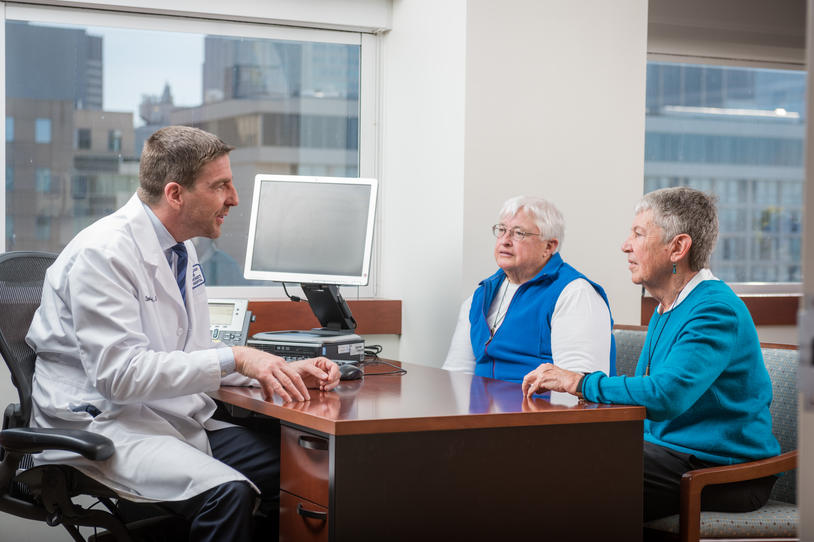
As more clinics and labs open back up after COVID disruptions and Parkinson’s research pushes ahead, the need for study participants is more crucial than ever. Our mission at The Michael J. Fox Foundation for Parkinson’s Research is to find better treatments and ultimately, a cure. You can join us and play a critical role by raising your hand to participate in research. In this latest research roundup blog, we share four studies recruiting volunteers.
- Landmark Study Needs You: The Foundation’s landmark Parkinson’s Progression Markers Initiative (PPMI) is ramping up recruitment and looking for people with and without Parkinson’s disease. Everyone has an important role to play, but parents, brothers and sisters, and adult children of people with Parkinson’s, aged 60 and up, are especially needed. Take a short survey to get started in the study.
Learn more about PPMI. - Clinical Trial Targeting LRRK2 to Stop Parkinson’s: Some people with Parkinson’s have too much activity of the LRRK2 protein. Biotech company Biogen is testing a drug, BIIB094, aimed at decreasing levels of LRRK2 protein to slow Parkinson’s progression. Across the United States and five other countries, the trial is recruiting 62 volunteers diagnosed with Parkinson’s in the last seven years (with or without a LRRK2 gene mutation, which is linked to the disease). Learn more and connect with study sites here.
Read about recent positive results from Biogen and partner Denali Therapeutics from trials of another LRRK2 therapy. - Remote Study to Prevent Fractures: People with Parkinson’s have a much higher risk of hip and other fractures due to walking issues or osteoporosis (thinning of the bone). The TOPAZ study (The Trial of Parkinson's And Zoledronic Acid), aims to help people with Parkinson’s maintain their independence by reducing the risk of fractures. TOPAZ is testing if zoledronate, also known as zoledronic acid (Reclast®), an FDA-approved medication for osteoporosis, can prevent fractures in people with Parkinson’s, whether or not they have osteoporosis. The study takes place remotely with interested participants completing an online consent form and video screening visit. While following safety protocols, a nurse will visit an eligible volunteer’s home to give the study drug or placebo. Their goal is to enroll 3,500 people with Parkinson’s across the United States. Learn more about the study.
Watch a video on walking and balance. - Stem Cell Trial to Treat Parkinson’s Years after Diagnosis: This trial is testing whether MSK-DA01, an experimental treatment derived from stem cells, is safe and effective in treating Parkinson’s symptoms at least five years after diagnosis. The stem cells are converted into brain cells that produce dopamine, the chemical lost in Parkinson’s, and inserted into the brain through an injection. The trial at Weill Cornell Medical College in New York City is recruiting people diagnosed with Parkinson’s five to 15 years ago, with two other sites opening over the coming months. Learn more here.
Read about stem cells.
We thank you for your interest in Parkinson’s research and hope you’ll join us in our quest to end Parkinson’s. Learn more about the role you can play in research. And search for studies you may be eligible to join on Fox Trial Finder.
